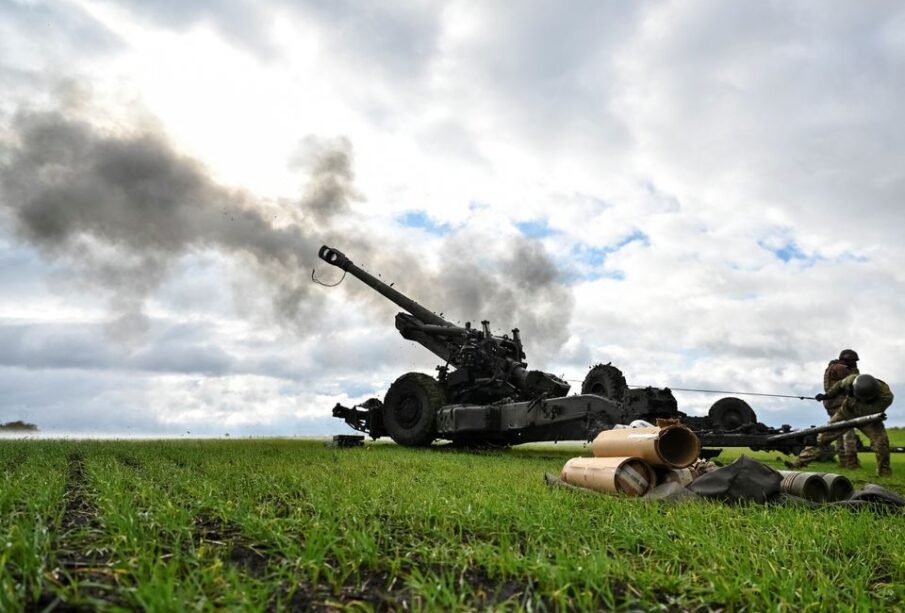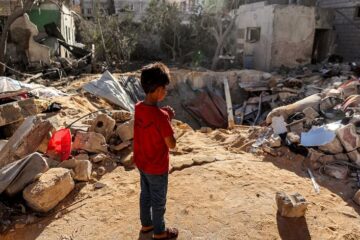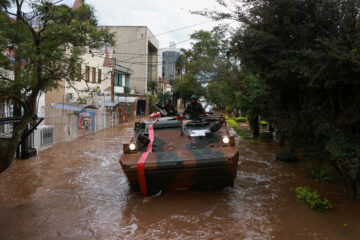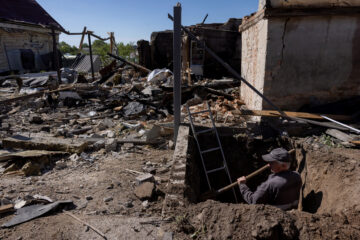Russia declares end of Ukraine mobilisation campaign, U.S. sending more arms
 Ukrainian service members fire a shell from a towed howitzer FH-70 at a front line, as Russia's attack on Ukraine continues, in Zaporizhzhia Region, Ukraine October 27, 2022. REUTERS/Stringer
Ukrainian service members fire a shell from a towed howitzer FH-70 at a front line, as Russia's attack on Ukraine continues, in Zaporizhzhia Region, Ukraine October 27, 2022. REUTERS/StringerRussia said on Friday it had finished calling up reservists to fight in Ukraine, having drafted hundreds of thousands in a month and sending more than a quarter of them already to the battlefield after a divisive mobilisation campaign that was its first since World War Two.
The United States, meanwhile, announced it would send another $275 million in military assistance to Ukraine, including arms, munitions and equipment from Pentagon inventories, bringing U.S. military assistance to the country under the Biden administration to more than $18.5 billion
U.S. Secretary of State Antony Blinken said Washington was working to provide Ukraine with air defence capabilities it needs, with two initial sophisticated anti-aircraft NASAMS ready for delivery to the country next month.
He said the United States was also working with allies and partners to enable delivery of their own air defence systems to Ukraine.
Ukraine’s President Volodymyr Zelenskiy said he doubted Moscow was finished calling up soldiers.
In his nightly televised address, he said Russian forces “are so poorly prepared and equipped, so brutally used by their command, that it allows us to presume that very soon Russia may need a new wave of people to send to the war.”
The divisive mobilisation drive has seen tens of thousands of men flee the country and gave rise to the first sustained public protests against the war.
“The task set by you of (mobilising) 300,000 people has been completed. No further measures are planned,” Defence Minister Sergei Shoigu told President Vladimir Putin at a televised meeting in the Kremlin. He said 82,000 had already been sent to the combat zone and the rest were training.
Putin thanked reservists “for their dedication to duty, for their patriotism, for their firm determination to defend our country, to defend Russia, which means their home, their family, our citizens, our people.”
Both men acknowledged “problems” in the early days of the call-up. Shoigu said initial issues in supplying newly mobilised troops had since been resolved. Putin said mistakes had probably been inevitable as Russia had not carried out a mobilisation for such a long time, but that lessons had been learned.
The mobilisation Putin ordered last month after his forces suffered major battlefield setbacks was the first time most Russians faced a direct personal impact from the “special military operation” he launched in February.
More than 2,000 people were arrested in anti-mobilisation protests, notably in parts of Russia populated by ethnic minorities who complained they were being disproportionately targeted to be sent to the front.
ESCALATION
Putin ordered the call-up when he endorsed plans to annex Ukrainian lands. The West describes those moves as an escalation in response to battlefield setbacks that showed Russia was on course to lose the war.
Western military analysts have said the call-up could help ease Moscow’s shortages of manpower along the 1,000-km (600-mile) front line, but the draft’s military value will depend on whether Moscow can properly equip and train the reservists.
Meanwhile, Kyiv has continued to make gains. Serhiy Gaidai, the Ukrainian governor of Luhansk province, said on Friday Ukrainian troops had practically gained full control of an important road connecting Svatove and Kreminna, major towns seen as the next big battle front in the east. Reuters could not independently verify the claim.
In the south, Ukrainian forces have advanced this month towards Kherson, the biggest city Russia has captured intact since its February invasion. It is at the mouth of the wide Dnipro River that bisects Ukraine and the surrounding region controls land approaches to Crimea, which Moscow has held since 2014.
The Ukrainian advance appears to have slowed in recent days, however, with Kyiv blaming poor weather and tough terrain.
Troops dug into muddy trench lines north of the city exchanged rocket, mortar and artillery fire.
Ukrainian soldiers manning a 120 mm mortar hidden in bushes loosed high explosive rounds in thundering bursts of flame at Russian positions around a grain silo less than a kilometre away.
Hennadyi, 51, said the Russians were using the silo for cover and observation. It poked like a finger above a vast expanse of fields, a column of smoke floating behind it.
Hennadyi said Ukrainian gunners were targeting Russian armoured vehicles and ammunition behind the silo and avoiding hitting the structure itself because of its importance to the agricultural region. But they did not have enough shells, he said.
“For every one shell that we send, they send back five,” he said amid the shellfire duels. “They shoot at us most of the time.”
Russia has ordered civilians out of a pocket of land it occupies on the west bank of the Dnipro, which includes Kherson city. Kyiv says the evacuation is cover for a forcible deportation of civilians by Russian forces, which Moscow denies.
Sergey Aksyonov, the leader of Crimea, said work had been completed on moving residents seeking to flee Kherson to regions of Russia ahead of Ukraine’s expected counter-offensive.
Ukraine’s general staff said hospital and business equipment was being removed from the area, while extra Russian forces were being deployed in empty homes.
Putin’s escalation in recent weeks has also included a new campaign to rain down missiles and Iranian-made suicide drones on Ukrainian civil infrastructure targets, particularly electricity substations.
Kyiv says the strikes are intended to freeze Ukrainians in winter and an intentional war crime. Moscow says it is permitted retaliation for Ukrainian attacks including a blast on a bridge to Crimea.
In Mykolaiv, a major Ukrainian-held city close to the Kherson front line, a missile blasted a huge crater outside a bakery overnight. Staff said two people were hurt by flying glass.
“At first, we did not hear anything – probably got deafened by the blast. In time we found (each other), started calling out and found each other,” Oksana Illyenko, a baker, told Reuters, recalling the explosion.
SOURCE: REUTERS










